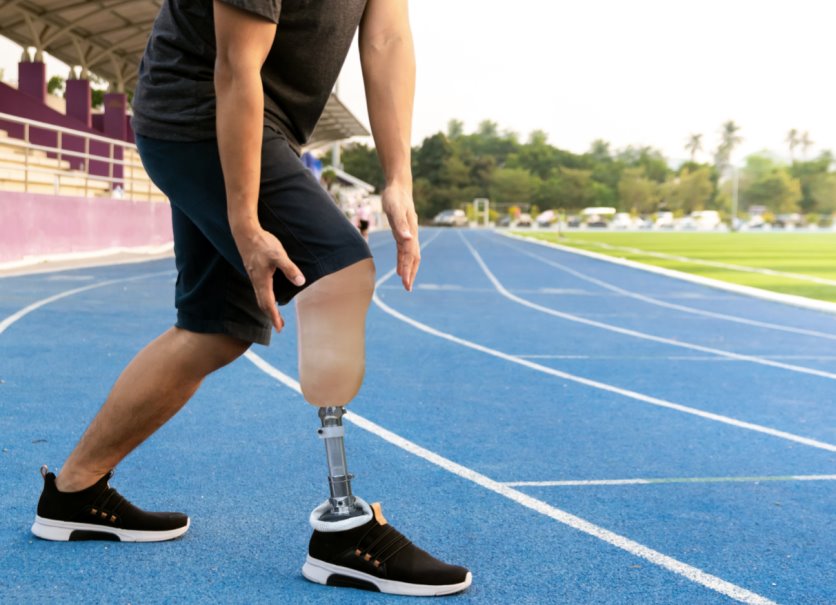Foot or Toe Amputation From a Work Accident
March 24, 2023 | Accidents
The loss of any limb can be devastating. It can result in the loss of function and mobility. If you have lost a foot or toe as a result of a work-related injury, you may be entitled to workers’ compensation benefits. Below, we take a look at workers’ compensation and its role in rehabilitation of workers that have lost a foot or toe as a result of a work accident.
The Impact of Foot or Toe Amputation
The amputation of a foot or toe can be the direct result of the work accident. For example, the worker may lose their foot or toe when it is severed by equipment such as saw blade at work. The amputation may also occur in order to save the accident victim’s life. For example, if blood flow to the foot or toe is restricted or if your foot or toe is badly infected and cannot be saved, your doctor may make the decision to amputate the toe or foot in order to save your life.
The loss of a toe or foot can have a long term impact on your life. You may be facing:
- The need for extensive medical treatment
- A long and painful recovery process
- The loss of balance
- The risk of infection
- Interference with motion
- Permanent disfigurement
The Use of Prosthetics After Foot or Toe Amputations
Technology has improved over the past few years. Prosthetics are now available to improve functionality and aesthetics in case of the loss of feet or toes. There is a wide array of prosthetics available for accident victims. There are even prosthetics that are designed with specific activities in mind including walking, running , swimming and dancing.
Modern prosthetics no longer feature heavy materials such as steel or wood. These materials are being replaced by lighter and more aesthetically pleasing materials such as plastics, silicone and carbon-fiber composites. Modern prosthetics are even designed to store and return some of the energy that the body generates while walking. They are made to mimic the mechanics of the natural foot. They include features such as adjustable heel heights, multi-axial rotation and shock absorption.
It is therefore possible for workers that have suffered foot or toe amputations to recover functionality. With rehabilitation, these workers can even return to work or train for a different vocation and continue to make a living.
Does Workers Compensation Cover the Cost of Foot or Toe Prosthetics?
Amputation injuries are amongst the costliest injuries that are covered under the workers’ compensation system. Workers that suffer an amputation as a result of a work-related injury end up needing surgical treatment. They may have to stay in the hospital for an extended period. They will also require medication and home care.
Depending on your circumstances, your doctor may recommend getting prosthetics. Foot or toe prosthetics offer many benefits including:
- The restoration of function
- Increased mobility
- Improved aesthetics
You may even be able to return to work if you are fitted with a prosthetic and are able to recover the functionality of your foot. New technologies have seen the improvement of prosthetic devices over the years that have helped accident victims regain functionality. However, these advancements have meant that prosthetics are more costly. Accident victims also require rehabilitation sessions to learn how to use their new prosthetic.
Prosthetics today may feature durable materials such as carbon-fiber composites, however, this does not mean that they last forever. Modern prosthetics often require regular maintenance and adjustments. They may also need to be replaced after several years (five years for most).
The process of acquiring a prosthetic isn’t easy or cheap either. There are many medical specialties involved in the process of fitting the prosthetic as well as the after-care. These include nurses, doctors, physical therapists, occupational therapists and even psychologists.
The costs associated with modern prosthetics are therefore quite high. It can run into the tune of several tens of thousands. You may be wondering whether workers’ compensation covers this cost. The good news is that workers’ compensation in many states provides cover for prosthetics. This includes hi-tech modern prosthetics that improve mobility and functionality.
Workers’ compensation benefits cover the acquisition of medical devices. These benefits also cover the cost of future medical treatment and rehabilitation of the worker. Foot prosthetic devices are therefore covered under workers’ compensation benefits.
Talk to an Experienced Workers’ Compensation Attorney
If you have had a foot or toe amputated as a result of a work-related injury, your employer or their insurance provider may be questioning the need for prosthetics or whether workers’ compensation covers prosthetics. You should contact our law firm to have your case evaluated by our professional and experienced attorneys. We will help you access the finances you need to acquire the prosthetics you deserve to help get your life back on track.

Foot Amputation From Work Accident

